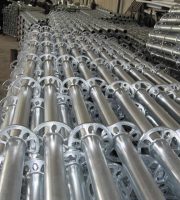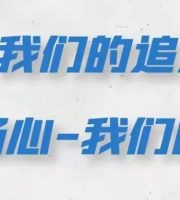Source: Huaihua news, cement people network, construction safety technology, etc
.
Huaihua news network at about 15:00 on October 22, a scaffolding collapse accident occurred in a cement plant under construction in Luyang Town, Zhongfang County, trapping eight people
.
As of the time of publication, 5 people have been successfully rescued, and they are out of danger after timely medical rescue; at present, 3 people are still missing, and the rescue team is going all out to search and rescue
.
The cause of the accident is under investigation
.
According to Sina Weibo, scaffolding and buildings collapsed at the construction site of the transportation corridor of Luyang cement plant in Zhongfang County of Huaihua on the afternoon of October 22
.
When Peng Guofu was directing the rescue work at the scene of the scaffold collapse accident in a cement plant in Luyang Town, Zhongfang County, he stressed that rescue work should be carried out in a scientific and time-saving manner, and hidden dangers in production safety should be rectified with an iron hand by thunderbolt
.
After receiving the accident report, Peng Guofu, deputy chairman of the Provincial Committee of the Chinese people’s Political Consultative Conference and Secretary of the municipal Party committee, immediately made arrangements for the rescue work and dispatched it overnight In the morning, he rushed to the scene to command the rescue
.
Lei Shaoye, deputy secretary of the municipal Party committee and mayor, rushed to the scene on the afternoon of the 22nd to command the rescue
.
Municipal leaders Yao Shuming and Xiong Antai attended
.
At the scene of the accident, Peng Guofu paid a visit to the public security, fire rescue, medical rescue personnel, city, county and rural cadres who participated in the rescue, and stressed that they should seize the time to rescue scientifically, strictly prevent the occurrence of secondary disasters, spare no effort to treat the injured, do a good job in psychological counseling, quickly set up a special working class, carry out accident investigation, seriously pursue responsibility, and properly deal with the aftermath of the accident Work
.
We should learn from the lessons and draw inferences from one example, focus on key industries such as construction, road traffic, fire control, gas, electricity and hazardous chemicals, and oil and gas transmission pipelines, quickly carry out major investigation, rectification, and rectification of potential safety hazards, and use Thunderbolt means to investigate and rectify potential safety hazards in production in an all-round way
.
The main person in charge of the party and government should implement the responsibility of the first person responsible for work safety, the leaders in charge and the joint leaders should take direct leadership responsibility for the work safety within the scope of their responsibilities, strictly implement the Department supervision responsibility and the enterprise main responsibility, seriously deal with the acts of omission, slow action and disorderly action, and ensure the safety of people’s lives and property
.
Lei Shaoye required that the rescue should be carried out in a scientific and safe manner, with every effort to do a good job in medical treatment, condition monitoring and psychological comfort of the wounded
.
We should draw inferences from one instance, do a good job in the investigation and rectification of hidden dangers in production safety, and ensure that no major accidents in production safety occur
.
Safe operation specifications and precautions for the use of scaffolds: scaffolds are indispensable and important tools in construction projects
.
Scaffolds are required to have sufficient area to meet the needs of workers’ operation, material stacking and transportation
.
Meanwhile, they must be firm and stable to ensure no deformation, inclination and shaking under various loads and climatic conditions during construction
.
1、 Common safety hazards of scaffold 1
.
No special construction scheme has been prepared or approved
.
2
.
The setting of scaffold wall connecting parts does not meet the specification
.
3
.
The distance between members and the setting of cross bracing do not meet the specification
.
4
.
The material of scaffold board, vertical pole, longitudinal horizontal pole and transverse horizontal pole does not meet the specification
.
5
.
The scaffold board of construction layer is not fully paved
.
6
.
Before the scaffold is erected, the disclosure is not carried out, the inspection and acceptance of the scaffold section and erection is not organized, or the acceptance records are not comprehensive
.
7
.
The scaffold materials are stacked too much and unevenly, and the load exceeds the specification
.
8
.
The protective railings of passageway and unloading platform do not meet the specification
.
9
.
Scaffold erection personnel are not trained to work
.
2、 Scaffold safety technical requirements 1
.
There must be a perfect construction scheme, which shall be approved by the technical director of the enterprise
.
2
.
There must be perfect safety protection measures, and safety nets, protective railings and toe boards should be set up according to regulations
.
3
.
Operators should have escalators, ladders and ramps to ensure safety when they go up and down the shelves
.
4
.
There must be good anti electricity and lightning protection devices
.
Steel scaffolds should be reliably grounded
.
Scaffolds higher than surrounding buildings should be equipped with lightning protection devices
.
5
.
It is necessary to set the sweeping pole, wall connecting piece and cross bracing according to the regulations to ensure the firmness of the frame
.
6
.
The scaffold board shall be fully laid and stably laid, and probe board shall not be left
.
Three supporting points shall be ensured and bound firmly
.
7
.
In the process of scaffold erection and use, it is necessary to check at any time, often remove the garbage on the scaffold, pay attention to control the load on the scaffold, and prohibit excessive stacking of materials on the scaffold and crowded operation of many people
.
8
.
After the resumption of the project and the weather of wind, rain and snow, the scaffold shall be inspected in detail, and the settlement, suspension, loose joint and skew of the scaffold shall be handled in time
.
9
.
In case of gale above level 6 or heavy fog or heavy rain, the work at height shall be suspended, and anti-skid measures shall be taken for the operation after rain and snow
.
10
.
The scaffold shall be inspected and accepted after erection, and it can only be used after passing the inspection and acceptance
.
11
.
When the scaffold is operated in multiple layers at the same time, reliable protective shed shall be set between each operation layer to prevent the upper layer falling objects from injuring the lower layer operators
.
Introduction (1) the erection and construction management of fastener type steel pipe external scaffold for building construction reflects the enterprise’s characteristic external scaffold image and standardized construction ability
.
This standard has compiled the internal standard for erection of external scaffold for building engineering in accordance with relevant national and local safety technical specifications
.
(2) This standard specifically states the facade image, structural requirements, erection and demolition, inspection and acceptance, and management requirements of external scaffolds, and details the structural methods of some special parts, including balcony, bay window, external elevator unloading platform, elevator shaft and lighting shaft, building external corner, etc
.
(3) If the specific contents of this standard do not conform to the requirements of relevant national and local safety technical specifications, the relevant national and local safety technical specifications shall prevail
.
2、 The basic parameter requirements (1) the steel pipe of the outer scaffold must be antirust treated, and after rust removal, one coat of antirust paint and two coats of finish paint shall be applied
.
(2) The model of wooden scaffold board is 3000 (6000) × 200 (250) × 50, and both ends are bound with Φ 1.6 mm galvanized iron wire; the steel mesh scaffold is made of hpb235 Φ 6 steel bar, with a cross section of 40 mm, and fixed on the small cross bar with Φ 1.6 mm galvanized iron wire
.
3 steel pipe color (1) yellow paint: scaffold pole, big and small cross bar, vertical and horizontal sweeping pole
.
(2) Red paint: wall attachment
.
(3) Yellow and black two-color paint: external protective railings of scaffold, ramp protective railings and unloading platform protective railings
.
(4) Red and white two-color paint: cross bracing, horizontal diagonal bracing, skirting board, stair edge guard rail, construction elevator unloading platform edge guard rail
.
(5) If the color of the schematic diagram is inconsistent with that of the text description, the color of the text description shall prevail
.
(1) the external protection of scaffold must be closed with qualified dense mesh safety net
.
The company logo (“company” banner) and slogan shall be set on the outer shelf
.
Ensure the coordination and beauty of the external shelf, and reflect the characteristics of the enterprise
.
(1) four vertical poles shall be set at the internal and external corners of the scaffold body, and the large cross bar shall be connected and closed
.
(2) Horizontal bar must be set at the main node
.
(3) Except the top of the top layer, the vertical pole must be butted, the large cross bar can be overlapped outside the frame corner, and the cross bracing must be overlapped
.
(4) The cross bracing and wall connecting parts must be erected and removed simultaneously with the external scaffold
.
It is forbidden to build later or dismantle first
.
6
.
Pole foundation (1) the height of floor type scaffold should not exceed 35m
.
Unloading measures must be taken when the height is between 35m and 50m, and unloading measures must be taken when the height is more than 50m
.
The special scheme shall be demonstrated by experts.
.

